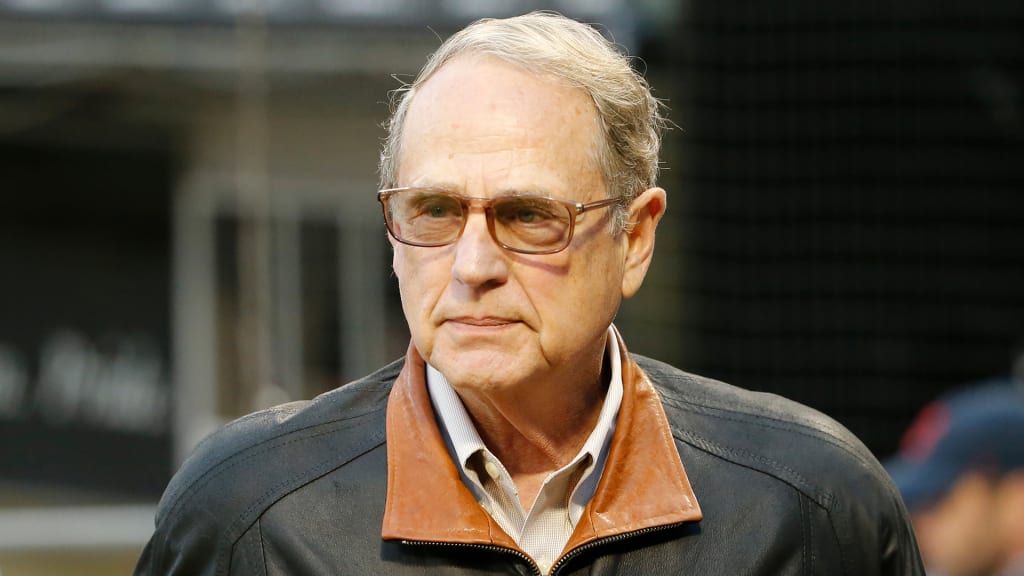
When I first heard about Major League Baseball having a special day every year for Jackie Robinson, I thought it was a terrific idea. This Sunday, we will once again pay tribute to a great man.
I actually went to the first game Jackie wore a Dodger uniform in New York. In 1947, the Dodgers played the Yankees in a preseason game in Brooklyn.
Back then, the significance of his color didn't sink in to an 11-year-old. I just knew the Dodgers had two rookies coming up: Jackie and Spider Jorgensen, a third baseman. We just wanted to see them play.
I don't really remember what he did that day or much about that game. Maybe I should revise history to tell a better story, but the fact of the matter is all I cared about was if he was going to be any good.
The first time it dawned on me that something more was happening was when I asked my friend, Lester Davis, who was African-American, who his favorite player was. He looked at me like I was an idiot and said, "Jackie Robinson, of course."
I said, "Oh yeah, that's right."
I was 11 years old. What did I know about social issues? In fact, it wasn't until a couple of years later that I became more aware of what was going on. In 1949, our family took a trip to Mexico and we had to go through San Antonio, Texas. I saw signs for colored water fountains and bathrooms. I thought, "What is that?"
None of that existed in Brooklyn. I grew up in a Jewish neighborhood, but our high school had a lot of African-American students. Looking back, Brooklyn probably was the ideal place for Jackie to play in the big leagues. It was a city of churches, and yet there was a big population of Jews, Irish and African-Americans. Everyone mixed with everyone else. It was a real melting pot.
It quickly became apparent that Jackie could play. He wasn't the best player I ever saw, but I always say he was the most exciting. He could do everything. He could run, bunt, steal bases and hit the occasional home run. I vividly remember Jackie jockeying back and forth on first base, messing around with the pitchers.
One maneuver Jackie loved was after hitting a single to right field, he would take a big turn around the bag. Very often, the right fielder would throw behind him and Jackie would race to second. Joe Torre once said the most exciting thing about Jackie Robinson is that you couldn't tag him out. He was incredible to watch in rundowns.
One time, I went with a friend to a sold-out game at Ebbets Field. This guy comes by and said, "Would you like to be on The Jackie Robinson Show?" He did a TV pregame show on the field. Well, we were pretty savvy and were thinking this guy just wanted our seats, so we said no. An hour later, these two kids came by and said, "Hey, we were on The Jackie Robinson Show." That's as close as I got to meeting Jackie.
When it comes to his legacy, Martin Luther King Jr. once said he couldn't have done what he did without Jackie Robinson. If Jackie had failed, it would have been years before we would have seen another African-American player in the big leagues. Everyone would have said, "They're not good enough." It was a major accomplishment for him to be able to face everything that was thrown at him and still be successful. It really opened the floodgates.
One of our initiatives with the White Sox involves growing the game in urban areas through our Amateur City Elite (ACE) program. Founded in 2007, it is designed to provide resources and hope to more than 100 inner-city youth each year, kids who might not otherwise be able to keep up with the travel-team culture that has permeated today's youth baseball.
We've had 19 players from the program get drafted, but the real goal of ACE is to help kids go to college, using baseball as a way to get an education. We've had 168 kids receive college scholarships.
I believe there is a crisis in this country with the underclass. The way to get people out of the underclass is through education and jobs. We didn't create ACE because of Jackie Robinson, but I would like to think he would be pleased with what we're doing with the program.
When I think of 1947, it makes me think of how old I am, and yet it seems like yesterday. Everyone from that era in Brooklyn felt like we were part of the Dodgers, and by extension, part of Jackie Robinson. I've always been very proud of the fact that Jackie Robinson was a Brooklyn Dodger, and that's where the color barrier was broken.

